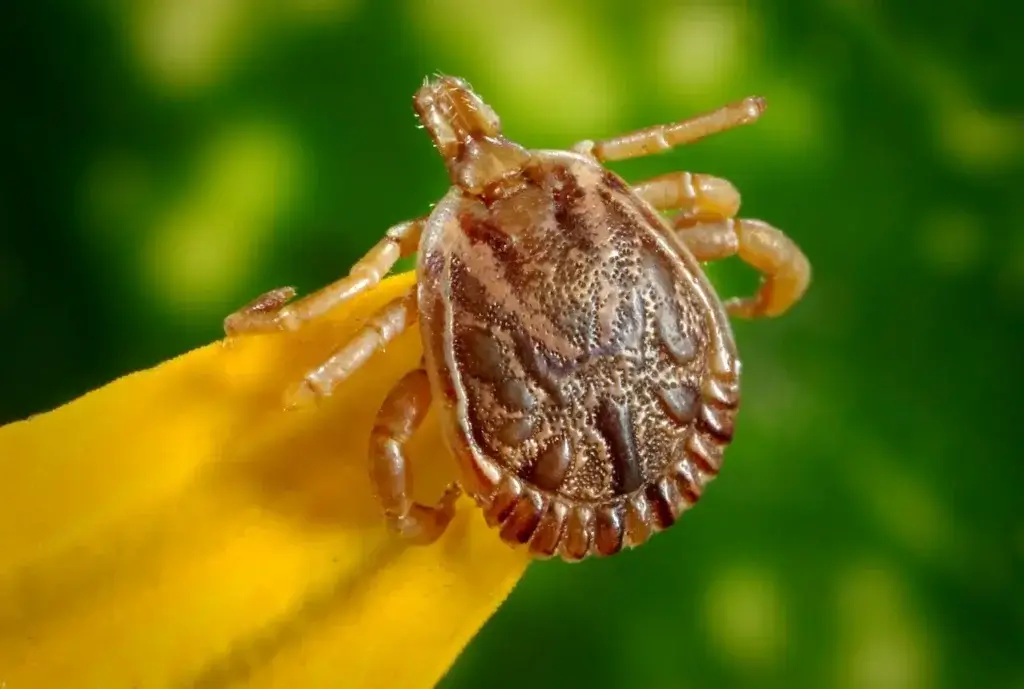
How Long Can Bed Bugs Live Without a Host?
Bed bugs, the tiny, blood-sucking insects that have plagued humanity for centuries, are a source of great discomfort and annoyance. These nocturnal pests are notorious for their ability to infest homes, hotels, and even public transportation. One of the most common questions about them we get from our customers? How long can bed bugs live without a host?
In this blog, we will explore the world of bed bugs, what attracts them, where they hide in a house, and ultimately, how long they can persist without a human or animal host. Plus, effective methods for getting rid of these resilient pests.

Table of Contents
What Are Bed Bugs?
Bed bugs, scientifically known as Cimex lectularius, are small, reddish-brown insects that feed exclusively on the blood of warm-blooded animals, primarily humans. Despite their name, bed bugs can be found in various places beyond just beds.
They are flat, oval-shaped, and typically grow to be about the size of an apple seed. Adult bed bugs can live for several months to a year or more, depending on various factors, including their access to a host and environmental conditions.
What Attracts Bed Bugs?
Understanding what attracts bed bugs is crucial in preventing infestations.
A. Body Heat
Bed bugs are attracted to the warmth emitted by human bodies. They possess specialized sensors that detect temperature changes and seek out the heat signatures of potential hosts, making our bodies a primary target.
B. Carbon Dioxide
When we exhale, we release carbon dioxide (CO2), which bed bugs can detect from a distance. They use this as a signal to locate sleeping hosts, as higher concentrations of CO2 indicate the presence of humans.
C. Odors and Chemicals
Bed bugs are drawn to the unique odors and chemicals emitted by human skin. These scents act as beacons, guiding them to their food source. Factors such as sweat, body oils, and even the chemicals found in soaps and lotions can attract bed bugs.
D. Physical Presence
Bed bugs are excellent climbers, and they can easily navigate surfaces in search of their host. They are also drawn to the vibrations and movements made by sleeping individuals.
E. Darkness and Hiding Spots
Bed bugs are nocturnal creatures that prefer darkness. They are often found in cracks, crevices, and seams of mattresses, making these areas particularly attractive.
They are also highly skilled hitchhikers, latching onto clothing, luggage, and other items to travel from one place to another. Overcrowded living conditions, frequent travel, and the presence of other infested locations nearby can increase the likelihood of attracting bed bugs.
Where Do Bed Bugs Hide in a House?
Bed bugs are expert hiders, making them challenging to detect and eliminate. They tend to congregate near their hosts, primarily in bedrooms and areas where people sleep or rest. Common hiding spots include:
A. Mattresses and Box Springs
These are classic hiding places for bed bugs, as they can easily access their hosts during the night.
B. Furniture
Bed bugs often infest couches, chairs, and other upholstered furniture near sleeping areas.
C. Cracks and Crevices
They can hide in cracks in walls, baseboards, electrical outlets, and even behind wallpaper.
D. Luggage and Bags
Bed bugs may stow away in luggage and bags, making them a common source of infestations in hotels and other travel-related locations.
E. Clothing
Bed bugs can also hide in clothing, especially in piles of laundry or clutter.
How Long Can Bed Bugs Live Without a Host?
Bed bugs are remarkably resilient and can survive for extended periods without a blood meal. On average, adult bed bugs can live without a host for anywhere from several weeks to several months. Under optimal conditions, some reports suggest they can survive up to a year or more without a blood meal.
Ultimately, though, the answer to the question, “How long can bed bugs live without a host,” depends on several factors:
1. Life Stage
Young bed bugs (nymphs) typically require more frequent feeding and have a shorter lifespan without a host compared to adult bed bugs.
2. Environmental Conditions
Temperature and humidity play a significant role in bed bug survival. In general, they can survive longer in cooler, more humid conditions.
3. Access to Water
While bed bugs primarily feed on blood, they can also hydrate themselves by absorbing moisture from the environment.
How to Get Rid of Bed Bugs
If you suspect a bed bug infestation in your home, it's essential to take action promptly. Here are some steps to help you get rid of bed bugs:
1. Inspect and Identify
Confirm the presence of bed bugs by looking for signs like bites, shed skins, and small reddish-brown bugs.
2. Clean and Declutter
Remove clutter and wash all bedding, curtains, and clothing in hot water. Vacuum and clean all potentially infested areas.
3. Isolate the Bed
Use bed bug-proof mattresses and box spring covers to isolate the infested bed.
4. Professional Bed Bug Treatment
Consider hiring a pest control professional experienced in dealing with bed bugs, as they have access to effective treatments.
5. Prevent Reinfestation
After treatment, take preventive measures like sealing cracks, using bed bug traps, and being cautious when traveling.
FAQ: How Long Can Bed Bugs Live Without a Host
What are bed bugs, and why are they a concern?
Bed bugs are small, reddish-brown insects that feed on the blood of humans and animals. They are a concern because their bites can be itchy and uncomfortable, and they can infest homes and other spaces, causing significant stress and inconvenience.
How do bed bugs find their hosts?
Bed bugs are attracted to the heat, carbon dioxide, and body odor emitted by humans and animals. They use these cues to locate and feed on their hosts, primarily at night when people are sleeping.
Do bed bugs die if they can't find a host?
Bed bugs are resilient and can survive without a host for extended periods. They won't die immediately if they can't find a host, but they will eventually become weaker and less active.
What environmental conditions favor bed bug survival without a host?
Bed bugs tend to survive longer in cooler, more humid conditions. Adequate humidity can help them stay hydrated without feeding on blood.
Are DIY methods effective in eliminating bed bugs?
While some DIY methods may help reduce the number of bed bugs, professional treatment is often necessary for complete elimination. Bed bugs can be challenging to eradicate, and a pest control expert can provide effective solutions.
Can I prevent bed bug infestations in my home?
You can take preventive measures to reduce the risk of bed bug infestations. These include regular cleaning, using bed-bug-proof mattresses and box spring covers, sealing cracks and crevices, being cautious when traveling, and inspecting secondhand furniture or clothing for signs of infestation.
Are bed bugs a health hazard?
While bed bug bites can be itchy and uncomfortable, they are generally not considered a significant health hazard. However, some people may experience allergic reactions to bed bug bites, which can require medical attention. Additionally, the psychological stress of dealing with an infestation can be a concern for some individuals.
Final Word: How Long Can Bed Bugs Live Without a Host
Bed bugs are persistent pests that can survive for varying lengths of time without a host, depending on factors like their life stage and environmental conditions. To effectively combat a bed bug infestation, it's essential to take a proactive approach, including thorough cleaning, professional treatment, and ongoing prevention measures to ensure these unwelcome guests don't return.
If you suspect you might be dealing with bed bugs in your home, contact us today at A-1 Pest Control for more information on our bed bug prevention and extermination services, as well as for a free initial inspection of your home. We serve Lenoir, Hickory, West Jefferson, Blowing Rock, and Mooresville, North Carolina.
